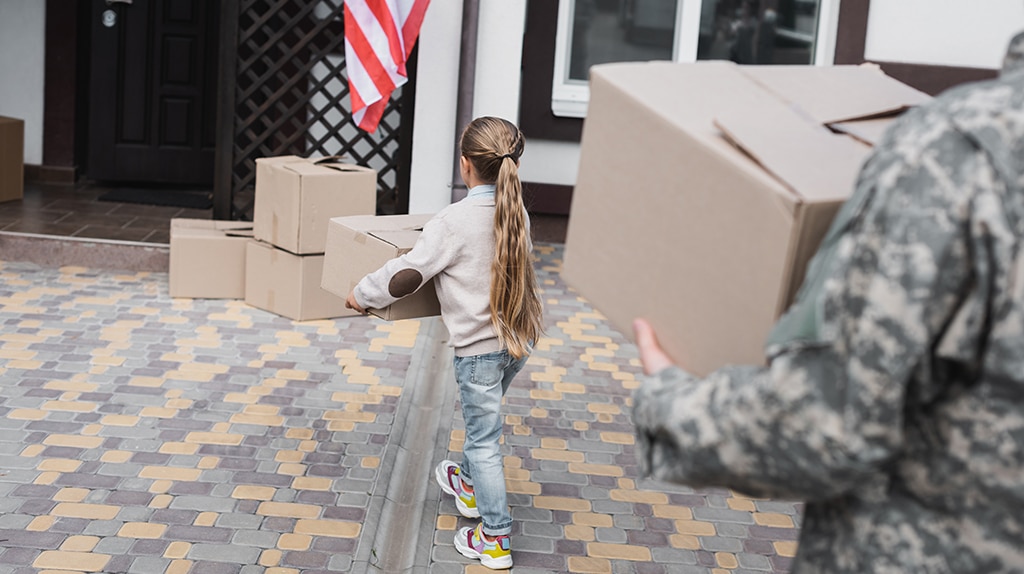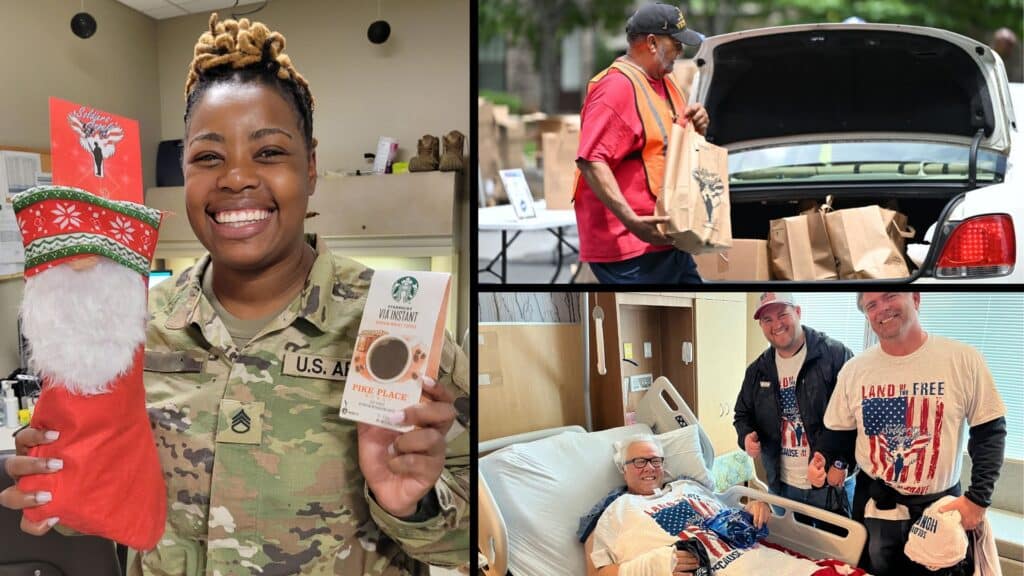Military Relocation with Kids: Tips for a Smooth Transition
July 5, 2025

Relocating is a part of Military life, but when children are involved, each move comes with its own unique challenges. For Military families—especially those with limited financial resources—navigating a Permanent Change of Station (PCS) can be stressful, emotional, and overwhelming. As a non-profit organization committed to supporting Service Members, Veterans, and their families, we understand how difficult it can be to move a household while also caring for the well-being of your children.
In this blog, we’ll explore actionable tips to help you navigate Military relocation with kids more smoothly. From planning ahead to easing emotional transitions, this guide is here to help you every step of the way.
1. Start the Conversation Early
One of the most important steps in any PCS move is communication, especially with children. Kids thrive on stability and predictability, so news of a big move can be jarring.
Tips:
- Be honest and age-appropriate. Tailor the conversation to your child’s age and maturity level.
- Give them time to process. Let them ask questions and express feelings.
- Highlight the positives. Mention new friends, new experiences, and exciting places to explore.
By making them feel included in the process, you give them a sense of control and security during a time of uncertainty.
2. Create a Moving Timeline Together
Involve your children in the planning stages by creating a relocation timeline together. This can help reduce anxiety by showing them what to expect and when.
Ideas to include:
- Packing day
- Saying goodbye to friends and teachers
- The moving truck’s arrival
- Travel plans or road trip routes
- First night in the new home
- First day at the new school
This timeline can be turned into a colorful calendar or visual checklist that children can help decorate and follow along with.
3. Use PCS Resources for Military Families
Relocating doesn’t have to mean doing it all on your own. Military families have access to a range of free resources to support them through PCS moves.
Helpful resources include:
- Military OneSource: Offers checklists, moving guides, and free counseling.
- Relocation Assistance Programs (RAP): Available on most Military installations to help with local information and community support.
- DoD Schools and Youth Sponsorship Programs: Help kids adjust to new schools and make new friends faster.
- Local non-profits: Organizations like ours can offer various types of services to help with the transition of moving. If you are looking to connect to a Military community, consider volunteering with us, virtually or in-person!
4. Minimize the Financial Strain
Military moves can be costly—even with a government reimbursement. For low-income families, this can be a major burden.
Financial-saving tips:
- Use the Dislocation Allowance (DLA) to offset relocation costs.
- Request an advance on your PCS travel pay if needed.
- Track all receipts—you may be able to claim moving expenses during tax season.
- Reach out to support organizations that assist with emergency expenses, utility bills, or gas cards during relocation.
Your local non-profit or Veteran support group may also provide additional assistance, like food pantries or temporary lodging help. At Soldiers’ Angels, we offer monthly food distributions in eight major cities in the United States where we distribute 75 lbs. of groceries for local low-income Military and Veteran families.
5. Prepare for School Transitions
Changing schools can be one of the most stressful parts of moving for kids. Losing friends, adjusting to a new curriculum, and trying to fit in socially can feel overwhelming.
Tips for an easier academic transition:
- Request school records early and hand-carry them to avoid delays.
- Research the new school district and connect with school counselors in advance.
- Ask about tutoring programs if your child needs extra academic support.
- Encourage your child to join clubs, sports, or interest-based groups to help them make friends.
If your child is on an Individualized Education Program (IEP), make sure to meet with new educators as soon as possible to maintain consistent support.
6. Create Comfort Through Familiar Routines
A familiar routine can be a powerful tool in easing your child’s anxiety during a PCS move. Even if your surroundings are new, maintaining structure provides a sense of normalcy.
Suggestions:
- Stick to usual meal and bedtime routines as much as possible.
- Bring favorite blankets, toys, or comfort items in a separate travel bag.
- Set up your child’s bedroom first in the new home to help them settle in.
- Try to continue regular family traditions, such as movie nights or game nights.
These little details offer big emotional comfort during transitions.
7. Make Saying Goodbye a Positive Experience
Saying goodbye is often the hardest part of relocating, especially for children who have developed strong bonds with friends, teachers, and neighbors.
Ideas to make farewells easier:
- Host a small goodbye party or playdate.
- Create a scrapbook or memory book of their favorite places and people.
- Collect addresses or set up video chat dates with friends.
- Teach them how to write letters or emails to stay in touch.
Making goodbyes meaningful helps children honor their emotions and find closure.
8. Stay Positive but Validate Their Emotions
As the parent or caregiver, your attitude toward the move will influence your child’s experience. That said, it’s okay for everyone to have mixed feelings.
How to support emotional well-being:
- Listen without judgment—sometimes they just need to vent.
- Acknowledge their fears and reassure them they’re not alone.
- Share your own feelings in an age-appropriate way to show empathy.
- Consider counseling if your child seems especially withdrawn or anxious.
Military life builds resilience, but that doesn’t mean your child won’t need help navigating emotional bumps along the way.
9. Get Involved in the New Community
Once you arrive at your new duty station, the best way to help your kids adapt is by helping the whole family settle in.
Ways to engage locally:
- Visit the base’s Family Support Center.
- Attend community events or open houses at your child’s school.
- Find a local church, sports league, or extracurricular program.
- Connect with other Military families for support and camaraderie.
Feeling part of something again can ease the homesickness and help your family feel rooted in your new home.
10. Remember: You Don’t Have to Do It Alone
Military life is full of challenges—but no family should have to face them alone. Whether you’re relocating to another state or across the country, resources exist to help you through the transition. Soldiers’ Angels proudly supports Military and Veteran families with programs that could ease the burden of relocation.
Final Thoughts

Military relocations will always come with a certain amount of stress, but they can also be an opportunity for growth, adventure, and stronger family bonds. By communicating openly with your children, maintaining structure, and leaning on your support network, you can help make the transition smoother and more manageable.
Consider volunteering with us, in-person or virtually, to support Veterans and other low-income Military families to build your sense of community, all while giving back to a cause your family has a personal stake in. We have many different volunteer opportunities that all give back to the Military-connected community!


